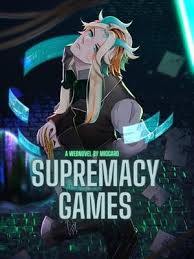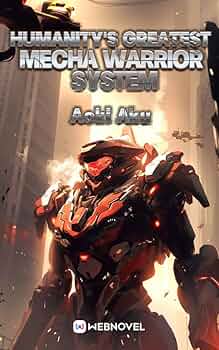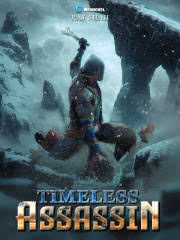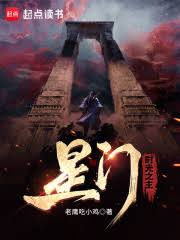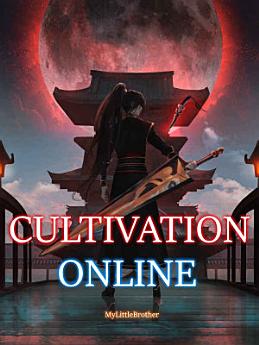The Story in 3 Sentences
Felix Maxwell is murdered in his original world after discovering an ancient ruin containing the imprisoned being Asna, only to be reincarnated into an alternate timeline through an experimental system that merges their souls, granting him unprecedented potential in a universe dominated by the Supreme Races and their brutal Supremacy Games .
Armed with human ingenuity and Asna’s cosmic knowledge, Felix navigates this dangerous new reality where civilizations stake their resources and sovereignty in deadly tournaments, competing against aliens, cultivators, and advanced species while uncovering the truth about his own identity as the universe’s lost consciousness .
His journey evolves from personal survival to cosmic rebellion, challenging the very architects of the Supremacy Games and forging alliances across species, ultimately confronting the Eternal Kingdom and the Three Rulers to redefine existence itself .
Why It Stands Out
1. Innovative Multigenre Fusion
The novel masterfully blends science fiction, cultivation, game-lit, and cosmic horror into a cohesive narrative, creating a fresh take on the reincarnation genre that feels both technologically advanced and mystically profound, with systems that integrate biological evolution, celestial energy, and virtual reality mechanics .
2. Cosmic-Scale Protagonist Development
Felix’s transformation from a murdered astrophysics student to the universe’s primordial consciousness is portrayed with unprecedented scale and philosophical depth, exploring themes of identity, destiny, and creation while maintaining relatable human emotions and relationships .
3. Intricate Multiversal World-Building
The story creates an expansive cosmology with detailed hierarchies including Supreme Races, Unigins, Celestials, and Primogenitors, each with distinct power systems, political structures, and historical conflicts that make the universe feel vast yet meticulously constructed .
Characters That Leave a Mark
There’s Asna – the Unigin being of immense power who becomes fused with Felix’s soul, serving as both guide and eventual love interest whose complex backstory as the exiled consciousness of virtue laws adds profound emotional and philosophical depth to the narrative .
You’ll meet Eris, the enigmatic Unigin who named Asna and maintains a motherly relationship with her, representing the ambiguous loyalties and moral complexities of the Eternal Kingdom’s inhabitants while providing crucial insights into the universe’s deepest mysteries .
And Apollo? He’s the Unigin who shared a sibling-like bond with Asna during her childhood, whose protective nature and resistance against her exile highlight the political tensions within the Eternal Kingdom and add emotional weight to the cosmic conflict .
The Flaws Fans Debate
The novel’s extremely complex blending of multiple power systems (sci-fi technology, cultivation, celestial energy, game mechanics) sometimes creates consistency issues, with readers debating whether certain abilities or progressions feel properly balanced within the established rules .
Pacing receives significant criticism in later sections where the cosmological scope expands dramatically, with some fans feeling the narrative becomes overwhelmed by metaphysical exposition and multiversal politics at the expense of character-driven storytelling .
The protagonist’s rapid escalation from human to cosmic entity divides readers, with some finding the transition too abrupt and others appreciating the audacious scale of his transformation, particularly in how it recontextualizes earlier story elements .
Must-Experience Arcs
Ch. 1–100: Soul Fusion Initiation – The foundational arc where Felix is murdered, reborn through the experimental system, and merges souls with Asna, establishing the core mechanics of their unique relationship and the immediate threats of the Supremacy Games .
Ch. 300–400: Primogenitor Bloodline Integration – A crucial development section where Felix begins integrating powerful bloodlines from entities like Jörmungandr and Sphinx, dramatically expanding his capabilities and understanding of the universe’s true power structure .
Ch. 1500–1600: Eternal Kingdom Confrontation – The cosmic-scale arc where Felix confronts the Three Rulers and learns his true identity as the universe’s consciousness, culminating in devastating battles and revelations that redefine the entire narrative .
Killer Quotes
“The universe doesn’t care about your morals—it only respects power. But how you wield that power? That’s what separates civilizations from monsters.”
“Humanity was considered a primitive species, but they forgot one thing—primitive doesn’t mean powerless. Sometimes the simplest solutions break the most complex systems.”
“In the Supremacy Games, there are no winners—only survivors who live to fight another day. The true victory is understanding the game well enough to change the rules.”
Cultural Impact
The novel has developed a dedicated international fanbase that passionately discusses its unique blend of genres and complex cosmological systems, with active online communities creating detailed charts mapping the relationships between different species, power hierarchies, and multiversal mechanics .
It has inspired numerous fan theories about the nature of consciousness and creation, particularly around Felix’s identity as the universe’s lost consciousness and Asna’s role as the virtue laws embodiment, sparking philosophical discussions that extend beyond the narrative itself .
The story’s innovative approach to reincarnation narratives has influenced other webnovels in the genre, particularly in how it integrates scientific concepts with supernatural elements in a cohesive cosmological framework that challenges traditional genre boundaries .
Final Verdict
Start Here If You Want:
A reincarnation story that breaks from traditional fantasy settings by blending sci-fi elements, cultivation mechanics, and cosmic-scale conflict into something genuinely innovative and boundary-pushing.
A protagonist whose journey spans from human vulnerability to cosmic omnipotence, offering a truly unprecedented scale of character development that explores profound philosophical questions about identity and creation.
A narrative with deeply layered world-building that gradually reveals a complex multiverse with intricate political systems, diverse alien cultures, and mysterious cosmic forces that reward patient reading.
Study If You Love:
The genre-blending approach of works like “The Legendary Mechanic” that mix sci-fi elements with game-like systems and progression mechanics, but with added cosmological depth.
Complex multiverse world-building similar to “The Second Coming of Gluttony” or “The Beginning After the End,” but with more emphasis on cosmic-scale conflicts and philosophical exploration.
Protagonists who undergo radical transformation like in “Reverend Insanity” or “Lord of the Mysteries,” but with even greater scale and metaphysical implications.
Avoid If You Prefer:
Traditional cultivation stories set entirely in ancient fantasy worlds without sci-fi or technological elements.
Fast-paced action without extensive world-building exposition; this novel takes time to develop its complex cosmological systems and philosophical concepts.
Stories with straightforward power progression systems; this narrative blends multiple advancement methods that require careful attention to detail and patience.
